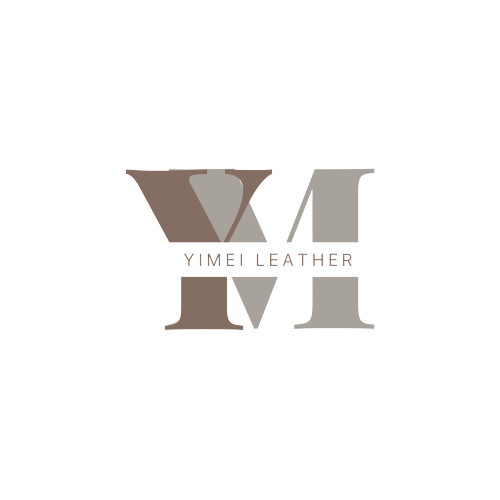In today’s global marketplace, China remains a manufacturing powerhouse, standing as the world’s “factory”— accounting for over 28% of global manufacturing output (per World Bank data, 2023), offering an unparalleled range of products at competitive prices. However, navigating the complexities of sourcing from China can be a daunting task for foreign buyers: language barriers, cultural misunderstandings, supplier risks, quality control gaps, and complex logistics. This is where a professional Chinese sourcing agent becomes an invaluable asset. Let’s explore the key reasons why partnering with a sourcing agent is essential for successful business operations in China.
First and foremost, sourcing agents bring extensive local knowledge and networks to the table. China’s manufacturing landscape is vast and fragmented. What works for sourcing electronics in Shenzhen may fail for textiles in Guangzhou or machinery in Changzhou. The sourcing agents have established relationships with reliable manufacturers, suppliers, and logistics providers across various industries. This insider access allows foreign buyers to tap into high-quality resources that might otherwise remain inaccessible, saving valuable time and effort in the supplier discovery process. For example, an agent specializing in consumer electronics will have direct connections to factories with ISO 9001 certification, experience exporting to Europe/NA, and a track record of on-time delivery—not random suppliers found on B2B platforms.
Secondly, language and cultural barriers pose significant challenges in international trade. Chinese business culture is rooted in guanxi (relationship-building), indirect communication, and respect for hierarchy—traits that can confuse foreign buyers accustomed to direct, results-driven interactions. A competent sourcing agent acts as a bridge, fluent in both languages and cultural nuances. They can effectively communicate technical requirements, negotiate terms, and resolve misunderstandings that might arise during business transactions. This cultural intelligence helps build trust with Chinese suppliers, leading to more favorable deals and long-term partnerships. For instance, pushing a supplier too hard on price (a common foreign misstep) can backfire — an agent will balance assertiveness with relationship preservation to secure fair terms.
Thirdly, quality control is another critical area where sourcing agents add immense value. They conduct on-site factory inspections, monitor production processes, and perform pre-shipment quality checks. For example, if you’re sourcing organic cotton t-shirts, the agent will test fabric samples for GOTS certification to ensure they’re truly organic. This hands-on approach ensures that products meet the buyer’s specifications and international standards, minimizing the risk of receiving subpar goods and avoiding costly returns or reputational damage.
Fourthly, Navigating China’s complex regulatory landscape and customs procedures can be overwhelming for foreign businesses. Sourcing agents possess in-depth knowledge of import-export regulations, documentation requirements, and compliance standards. They know the ins and outs of compliance: applying for Certificates of Origin (to reduce tariffs), ensuring products meet destination-country standards (e.g., CE for the EU, FCC for the US), and navigating trade policies (e.g., US-China tariff exemptions for certain goods). They streamline the shipping and logistics process, ensuring smooth customs clearance and timely delivery of goods, thus reducing delays and potential legal issues. If a port is congested (e.g., Shanghai during peak seasons), the agent will reroute shipments to alternative ports (e.g., Ningbo) to keep timelines on track. They also track shipments in real time and resolve issues (e.g., lost containers) quickly.
Fifthly, cost optimization is a primary concern for any business, and sourcing agents excel in this area. Leveraging their market expertise and volume purchasing power, they can negotiate better prices, payment terms, and MOQs (Minimum Order Quantities) with suppliers. Additionally, they help identify cost-saving opportunities in packaging, shipping, and production processes without compromising on quality.
Sixly, time efficiency is yet another compelling reason to work with a sourcing agent. Coordinating with suppliers across different time zones, managing production schedules, and handling unexpected issues can be extremely time-consuming. A local agent takes care of these day-to-day operations, allowing foreign buyers to focus on their core business activities while ensuring that projects stay on track. Example: A US-based e-commerce seller spent 20+ hours/week managing Chinese suppliers before hiring an agent. After partnering, they reduced that time to 2 hours/week—freeing them to launch 3 new product lines.
Finally, risk mitigation is an essential benefit of partnering with a sourcing agent. They conduct thorough background checks on suppliers, verify certifications, and ensure compliance with ethical sourcing practices. In the event of disputes or production delays, they act as your local representative to resolve issues promptly, protecting your business interests.
In conclusion, a Chinese sourcing agent is not just a middleman but a strategic partner who simplifies the complexities of international trade. From supplier identification and quality control to logistics coordination and risk management, their expertise and local presence provide foreign buyers with a competitive edge in the Chinese market. By leveraging their services, businesses can navigate the challenges of sourcing from China with confidence, efficiency, and peace of mind.
Ready to simplify your China sourcing journey? Start by partnering with a reputable agent who aligns with your industry, values, and business goals.

